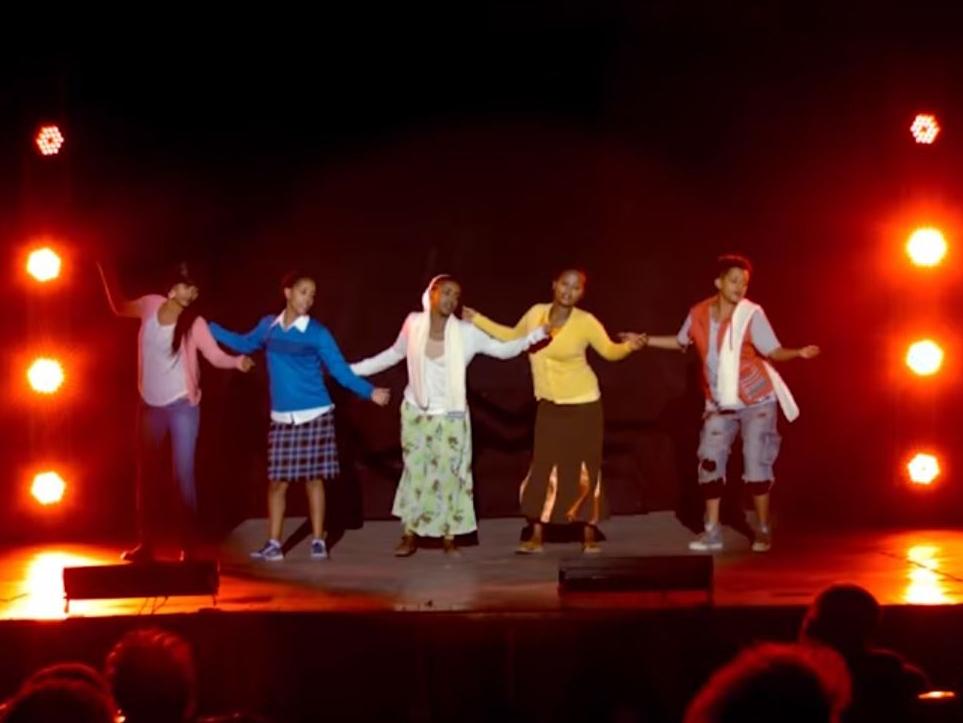UK ends £5.2m taxpayer support for Ethiopian girl band project
'Empowering women and girls around the world remains a priority, but we judge there are more effective ways to invest UK aid'

British taxpayers' money will no longer be used to fund the project behind an Ethiopian girl band, the Department for International Development (DfID) has said.
The five-piece pop group Yegna was formed as part of the Girl Effect programme and officials had previously praised the impact the project was having.
But International Development Secretary Priti Patel was challenged about a reported £5.2m grant to the scheme when she appeared before MPs in December and indicated that the programme was under review.
DfID has now confirmed that the partnership with Girl Effect had ended.
A DfID spokeswoman said: "We have taken the decision to end our partnership with Girl Effect following a review of the programme.
"Empowering women and girls around the world remains a priority, but we judge there are more effective ways to invest UK aid and to deliver even better results for the world's poorest and value for taxpayers' money."
DfID had previously said: “UK aid in Ethiopia is combating forced child marriage, violence, teen pregnancy, migration and school drop-out, which are holding a generation of young Ethiopian women back.
“In the Amhara region the UK's work on girls and women, including Girl Effect, has averted or delayed marriage for nearly 40,000 girls.
“All programmes are kept under review to ensure they are helping the world's poorest and delivering value for UK taxpayers.”
Yegna is billed as a “multi-platform culture brand inspiring positive behaviour change for girls in Ethiopia”.
Girl Effect said in 2015 that 3.3 million people in Ethiopia listened to or watched a Yegna drama, talk show or film and the project had involved huge concerts, film screenings, thousands of listening groups and resulted in number one hits.
A statement on the Girl Effect website said: “As the UK's Department of International Development today advised us of the conclusion of its work with Girl Effect, we would like to highlight the impact of Yegna on millions of people in Ethiopia and the new knowledge we have gained through our work together.”
It added: “Yegna is only one example of Girl Effect's work, and the change we are unleashing across all corners of the globe. In four short years we have achieved irreversible momentum. Change that has begun in this generation will continue into the next, and all generations to come.
“New ideas are often resisted and sometimes wilfully misrepresented. Our work continues with the confidence we gain from the feedback of girls and their communities on the ground.”
Farah Ramzan Golant, Girl Effect's chief executive, said: “We and our supporters across media, technology and business believe in the power of innovative, unconventional and efficient solutions to combating poverty at scale.
“Yegna is a pioneering example of this. Now more than ever we are committed to leveraging this expertise to grow the impact of Yegna and all our programmes around the world.”
Yegna, which aims to enhance the role of women through music and performance, was reportedly using some of the £5.2m grant money to develop a radio drama.
The money was part of £16m awarded to the Girl Hub project, which was rebranded as Girl Effect, according to a Daily Mail investigation.
Ms Patel was challenged about the project when she appeared before the Commons International Development Select Committee in December.
She said the Yegna grant was simply “one component” in a wider programme promoting the rights and wellbeing of women and girls in the country.
“UK aid in Ethiopia is combating forced child marriage, violence, teen pregnancies - all those really, really big, substantial issues,” she said.
“We are doing a range of work there. That is just one programme, one project. It is actually doing substantial work combating the issues that I've highlighted. But at the same time all programmes are under review.”
Senior Tory Nigel Evans, who challenged Ms Patel about the project at the select committee hearing, welcomed the announcement as a "great victory for common sense".
He said: "Priti Patel said she would review all spending and clearly she has demonstrated that she is doing just that and has no fear about attacking what I would term vanity projects.
"She can now ensure that the money that people want to see spent on the very poorest and saving lives, producing medicine and drugs to the most vulnerable throughout the world - that money will now be spent far more effectively."
Join our commenting forum
Join thought-provoking conversations, follow other Independent readers and see their replies
Comments
Bookmark popover
Removed from bookmarks